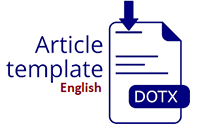POWER OF LANGUAGE IN EDUCATION
Abstract
Full Text:
PDFReferences
Bruner, J. 1990. Acts of Meaning. USA: Harvard College.
• Coren, A. 1997. A Psychodynamic Approach to Education. London:
Sheldon
Press.
• Fairclough, N. 1989. Language and Power. London: Longman.
• Fairclough, N. 1995. Critical Discourse Analysis. London: Longman.
• Foucault, M. 1980. Power / Knowledge: Selected interviews and
otherwritings
by Michel Foucault 1872-1977. New York: Pantheon.
• Foucault, M. 1983. The subject and power. In H. L. Dreyfus & P. Rabinow
(Eds.), Michel Foucault: Beyond structuralism and hermeneutics (2nd
ed.,
pp. 208-226). Chicago: University of Chicago Press.
• Gee, J. P. 1999. An Introduction to Discourse Analysis. Theory and
Method. London: Routledge.
• Gumperz, J. J. 1982. Discourse strategies. Cambridge: CUP.
• Mercer, N. 1995. The Guided Construction of Knowledge. Talk
amongstteachers and learners. Great Britain: Cromwell Press.
• Popkewitz, T. S. & Brennan, M. 1998. Restructuring of Social and Political
Theory in Education: Foucault and a Social Epistemology of School
Practices, In Popkewitz & Brennan (Eds.). 1998. Foucault’s
DOI: https://doi.org/10.36987/ecobi.v5i1.76
Refbacks
- There are currently no refbacks.

